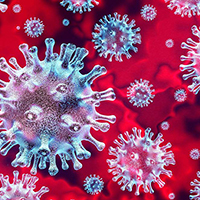Physiotherapist involvement in the pandemic era: a Lombardy region survey

Submitted: January 5, 2021
Accepted: April 17, 2021
Published: May 4, 2021
Accepted: April 17, 2021
Abstract Views: 1695
PDF: 763
Supplementary: 98
Annex 1: 101
Annex 2: 107
Supplementary: 98
Annex 1: 101
Annex 2: 107
Publisher's note
All claims expressed in this article are solely those of the authors and do not necessarily represent those of their affiliated organizations, or those of the publisher, the editors and the reviewers. Any product that may be evaluated in this article or claim that may be made by its manufacturer is not guaranteed or endorsed by the publisher.
All claims expressed in this article are solely those of the authors and do not necessarily represent those of their affiliated organizations, or those of the publisher, the editors and the reviewers. Any product that may be evaluated in this article or claim that may be made by its manufacturer is not guaranteed or endorsed by the publisher.
Similar Articles
- Elio Gorga, Marta Scodro, Francesca Valentini, Renzo D'Ortona, Mariachiara Arisi, Edoardo Sciatti, Ivano Bonadei, Valentina Regazzoni, Enrico Vizzardi, Marco Metra, Piergiacomo Calzavara Pinton, Echocardiographic evaluation of diastolic dysfunction in young and healthy patients with psoriasis: A case-control study , Monaldi Archives for Chest Disease: Vol. 88 No. 3 (2018)
- Marzia Vassalini, Andrea Verzeletti, Francesco De Ferrari, Standard of care and guidelines in prevention and diagnosis of venous thromboembolism: medico-legal implications , Monaldi Archives for Chest Disease: Vol. 84 No. 1-2 (2015): Cardiac series
- Massimiliano Polastri, Lara Pisani, Andrea Dell'Amore, Stefano Nava, Revolving door respiratory patients: A rehabilitative perspective , Monaldi Archives for Chest Disease: Vol. 87 No. 3 (2017)
- Madalina Macrea, Richard ZuWallack, Linda Nici, There’s no place like home: Integrating pulmonary rehabilitation into the home setting , Monaldi Archives for Chest Disease: Vol. 87 No. 2 (2017)
- M. Vitacca, J. Escarrabill, G. Galavotti, A. Vianello, E. Prats, R. Scala, A. Peratoner, E. Guffanti, L. Maggi, L. Barbano, B. Balbi, Home mechanical ventilation patients: a retrospective survey to identify level of burden in real life , Monaldi Archives for Chest Disease: Vol. 67 No. 3 (2007): Pulmonary series
- Simona Giampaoli, Giovanni Viscogliosi, Diego Vannuzzo, We all want to live longer, but not grow old , Monaldi Archives for Chest Disease: Vol. 87 No. 2 (2017)
- Ombretta Omodeo, Elena Fiabane, Ines Giorgi, Claudia Grandis, Alessandra Gualco, Monica Ceresa, Psychological needs and mental health in women aged ≥ 65 years after cardiac surgery: an exploratory study , Monaldi Archives for Chest Disease: Vol. 80 No. 1 (2013): Cardiac series
- P. Trerotoli, N. Bartolomeo, A.M. Moretti, Hospitalisation for COPD in Puglia: the role of hospital discharge database to estimate prevalence and incidence , Monaldi Archives for Chest Disease: Vol. 69 No. 3 (2008): Pulmonary series
- S. Bertini, M. Picariello, M. Gorini, T. Renda, A. Augustynen, G. Villella, G. Misuri, N.M. Maluccio, R. Ginanni, D. Tozzi, A. Corrado, Telemonitoring in chronic ventilatory failure: a new model of survellaince, a pilot study , Monaldi Archives for Chest Disease: Vol. 77 No. 2 (2012): Pulmonary series
- Samuele Baldasseroni, Francesco Orso, Alessandra Pratesi, Alice Foschini, Andrea Giosafat Marella, Nadia Bartoli, Ilaria Bracali, Alessando Antenore, Francesca Tarantini, Costanza Burgisser, Niccolò Marchionni, The complexity of risk stratification in older patient candidate to non-cardiac surgery , Monaldi Archives for Chest Disease: Vol. 78 No. 3 (2012): Cardiac series
You may also start an advanced similarity search for this article.

 https://doi.org/10.4081/monaldi.2021.1762
https://doi.org/10.4081/monaldi.2021.1762





